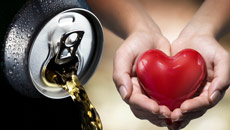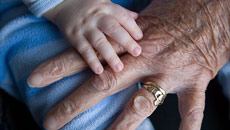If you have switched to sugar-free drinks to avoid tooth decay, don't be rest assured that you have got rid of the problem. Even sugar-free drinks and foods may kick-off tooth decay, dentists have warned.
The researchers from University of Melbourne tested 23 different types of drinks, including soft drinks and sports drinks.
They found drinks that contain acidic additives and those with low pH levels cause measurable damage to dental enamel, even if the drink is sugar-free, Daily Mail reported.
The cocktail of chemicals and acids in sugar-free food and drinks can have the same impact, wearing away at the teeth, researchers from University of Melbourne said.
"Many people are not aware that while reducing your sugar intake doesn't reduce your risk of dental decay. The chemical mix of acids in some foods and drinks can cause the equally damaging condition of dental erosion," lead researcher Eric Reynolds was quoted as saying.
Dental erosion occurs when acid dissolves the hard tissues of the tooth. In its early stages, erosion strips away the surface layers of tooth enamel.
Researchers measured dental enamel softening and tooth surface loss following exposure to a range of drinks.
They found that the majority of soft drinks and sports drinks caused softening of dental enamel by 30 percent to 50 percent.
Both sugar-containing and sugar-free soft drinks (including flavoured mineral waters) produced measurable loss of the tooth surface, with no significant difference between the two groups of drinks, the study found.
"We have even found sugar-free confectionery products that are labelled 'tooth-friendly' and which when tested were found to be erosive," Reynolds said.





